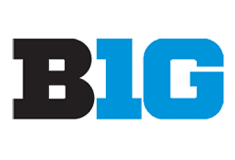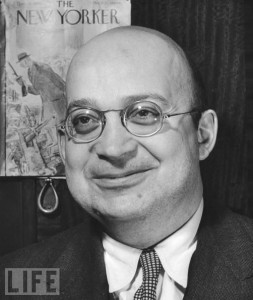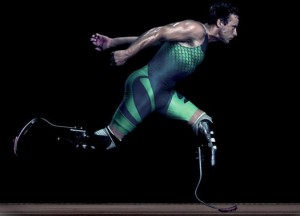 Not long ago, newspaper editors thought the idea of a reporter getting a college education was about sensible as horns on a horse. Applying a slightly different comparison, New York Tribune founding editor Horace Greeley displayed a notice in his paper’s office saying: “No college graduates or other horned cattle need apply.”
Not long ago, newspaper editors thought the idea of a reporter getting a college education was about sensible as horns on a horse. Applying a slightly different comparison, New York Tribune founding editor Horace Greeley displayed a notice in his paper’s office saying: “No college graduates or other horned cattle need apply.”
Nowadays, of course, college degrees are basic requirements for journalists. Indeed, a former city editor of mine who had left our little New Jersey daily was denied advancement at Newsday a decade or two ago because he lacked such a degree, never mind his ample skills as an editor. The thinking, one presumes, is that only someone who has been broadly schooled in the textbook-learning on offer at university can bring to bear the intellectual breadth needed in a modern news operation.
Fair enough (except, of course, to my frustrated former editor). But what are the limits to creeping credentialism? Should a master’s degree now be the threshold requirement for a journalist? Beyond that, what should the credentials of a teacher of journalism at a university be? How about a dean? Is a Ph.D. a minimal requirement for a professor or a J school administrator?
 This all comes to mind as we at the University of Nebraska-Lincoln ponder five candidates for the deanship at the College of Journalism and Mass Communications. Three boast doctorates, while one stopped at his master’s degree and another topped out academically with a bachelor’s. While the first three earned advanced degrees, the latter got their educations on the job, leading impressive advertising and news operations, respectively. (Indeed, all are impressive for differing reasons.)
This all comes to mind as we at the University of Nebraska-Lincoln ponder five candidates for the deanship at the College of Journalism and Mass Communications. Three boast doctorates, while one stopped at his master’s degree and another topped out academically with a bachelor’s. While the first three earned advanced degrees, the latter got their educations on the job, leading impressive advertising and news operations, respectively. (Indeed, all are impressive for differing reasons.)
So which one is best equipped to run a J school? Naturally, one cannot judge them on paper alone. To their credit, the members of our school’s selection committee did not toss the resumes lighter on academic credentials. Instead, they invited the contenders to pitch us on their ideas for how to run a school that aims to supply talented, well-rounded journalists and advertising and PR people to industry – a particular challenge as the industry changes fast around us and the demands for technical skills grow.
The open-mindedness of the committee members may reflect the makeup of our college faculty, a wondrous blend of sheepskin and shoe-leather. All of us have master’s degrees, but relatively few have doctorates. Those without the high-level academic pedigrees honed their craft in years of experience in such places as the New York Times, Newsday, The Miami Herald, The Detroit News, The Denver Post, The St. Petersburg Times (and Politifact), BusinessWeek, The Wall Street Journal and TV stations in markets such as Detroit and Omaha, as well as ABC News. Nebraska is a place where students learn from people who’ve gotten their schooling in the trenches as well as the classroom.
 The decision, of course, on who will take our mantle won’t really be made by that faculty. We get to weigh in. But, ultimately, the choice will be made by top officials at UNL, most of whom have earned Ph.D.s (though our chancellor’s degree is a juris doctor). Will they demand the Ph.D. union card, consciously or otherwise? Should they, in fact, given that research is a growing requirement for J schools to shine? And, does Nebraska’s entry into the Big Ten demand the credential, not only of our dean but of more faculty members over time, as well? Will the college be taken seriously alongside the likes of Northwestern if we don’t go toe-to-toe on the credentials front? What does it take to run with the big dogs these days?
The decision, of course, on who will take our mantle won’t really be made by that faculty. We get to weigh in. But, ultimately, the choice will be made by top officials at UNL, most of whom have earned Ph.D.s (though our chancellor’s degree is a juris doctor). Will they demand the Ph.D. union card, consciously or otherwise? Should they, in fact, given that research is a growing requirement for J schools to shine? And, does Nebraska’s entry into the Big Ten demand the credential, not only of our dean but of more faculty members over time, as well? Will the college be taken seriously alongside the likes of Northwestern if we don’t go toe-to-toe on the credentials front? What does it take to run with the big dogs these days?
For wisdom, readers might turn to a report issued last October by the Columbia Journalism School. It traces the growth of professionalism in the field and details longstanding tensions between industry and academia, along with the strains between journalism programs and the higher reaches of universities. “Very few schools are dominated by faculty members who have either journalism degrees or PhDs in communication. And many dean searches turn into contests between a journalist and an academic,” says the report, “Educating Journalists: A New Plea for the University Tradition.”
The authors argue for boosting the quality and quantity of graduate professional education in journalism. They say they hope this would lead to a master’s degree in journalism or a doctorate in communication becoming a standard credential for a journalism faculty member. Taking care to argue for top-quality instruction, they remind readers of Greeley’s thoughts and those of another journalistic icon, A.J. Liebling. The latter blasted his J school training (at Columbia) as boasting “all the intellectual status of a training school for future employees of the A&P.”On requirements for deans, however, the authors punt. That may be fitting since one of the three authors, Nicholas Lemann, led Columbia for a decade even though his formal education didn’t go past a bachelor’s degree (he was busy cutting a deep swath at the Washington Monthly, Texas Monthly, Washington Post, Atlantic Monthly and The New Yorker). Indeed, Lemann’s successor at Columbia, Steve Coll, likewise didn’t spend more time in a classroom than needed for a BA, but instead put in his time writing seven books while laboring at The Washington Post and The New Yorker. Coll took the helm at Columbia just this year.
So what qualities will prevail at CoJMC? Will the Ph.D. be the price of entry to the deanship here and, increasingly, at J schools across the country (except at that titan in Morningside Heights, which improved a lot since Liebling’s day)? In time, will a doctorate be mandatory for tenure-track positions at all such schools, as it is already at many that are not as enlightened as CoJMC?
Stay tuned.




